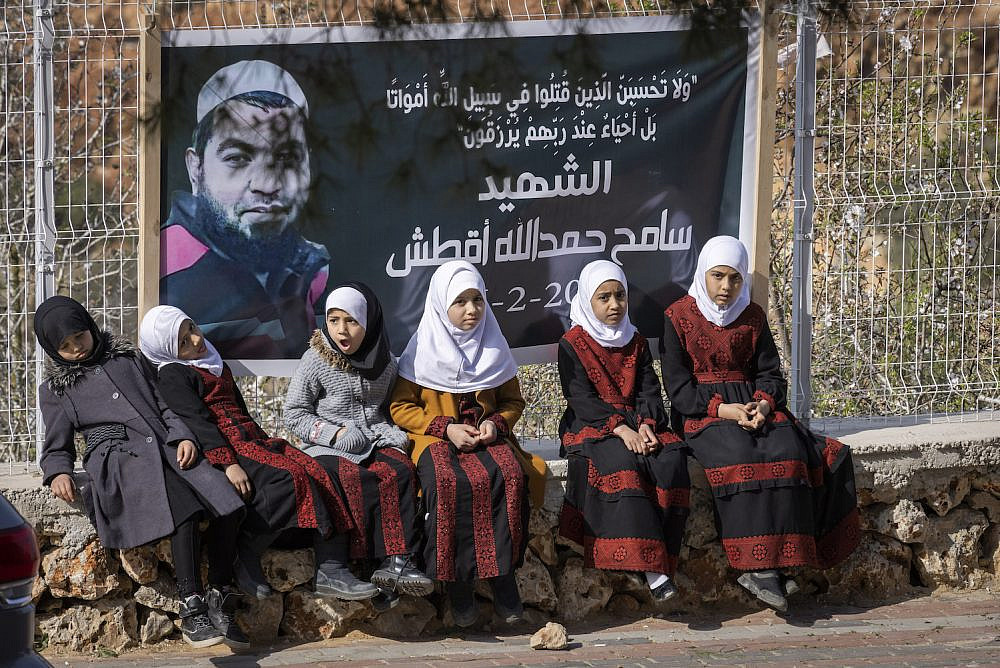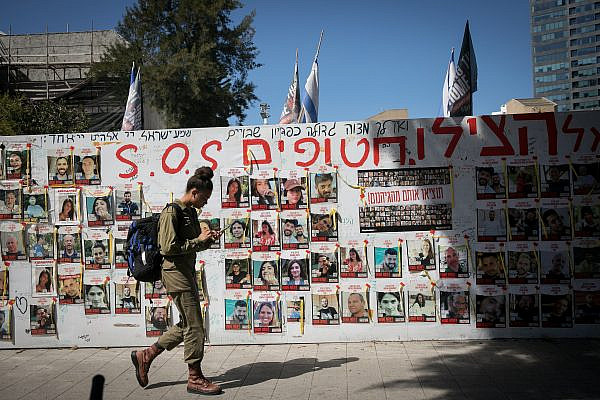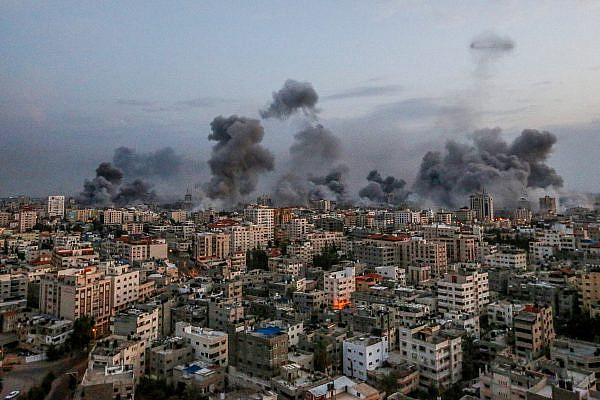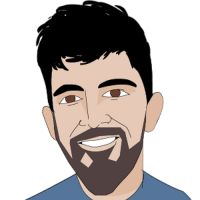Last Sunday night, when Israeli settlers launched a pogrom on the West Bank town of Huwara, a Palestinian man, Sameh Aqtesh, was fatally shot during a simultaneous settler attack in the nearby village Za’atara. And according to an analysis of 14 videos by Palestinian residents obtained by +972 and Local Call, Israeli soldiers — as in Huwara — were escorting the settlers during the shooting of Aqtesh.
The videos do not show the shots being fired, making it difficult to determine whether the shooting came from the soldiers or the settlers — or from a third party that does not appear in the videos. However, the documentation clearly shows that Israeli security forces were not only present in the area at least 15 minutes prior to the shooting, but they did nothing to prevent the settler attack, nor to identify or catch the perpetrator who killed Aqtesh.
According to the testimonies and videos, the incident began on Feb. 26 at around 7 p.m., when masked settlers came down to Za’atara from Tapuach Junction, a major traffic artery nearby, and began attacking homes in the village. Palestinian residents reacted by throwing stones at the attackers, forcing the settlers to retreat.
An hour and a half later, the settlers returned to the village — this time with soldiers backing them up. In a video recorded moments after Aqtesh’s shooting, taken on Sunday at 8:44 p.m., at least three soldiers, two military jeeps, and what appears to be a police vehicle are seen accompanying a group of around 40 settlers.
Footage of Samer Aqtesh’s killing:
“The settlers came twice,” said Abed Aqtesh, Sameh’s older brother. “The first time, they came alone and we managed to drive them away. The second time they came back with soldiers and with the settlement security coordinator. There were about 50 settlers; they threw stones at us, and had jerry cans full of gasoline. We threw stones at them.”
In the video recording of the moment of the shooting, one of the Palestinian residents is heard saying, “Don’t be afraid,” while some of the settlers shine flashlights and laser pointers in what appears to be an attempt to blind the residents. Then two more shots are heard, and one of the residents is heard saying: “It’s in the air.” Five more shots are fired. The Palestinian residents are heard saying: “They are shooting at us — ambulance.” This was likely the moment Aqtesh was hit.
At the end of the video, two more shots are heard as well as another call for help. Throughout the video, no Palestinian residents are seen throwing stones or confronting the settlers or the soldiers. After the shooting, the video shows a settler throwing stones again.
“They started shooting live fire. They didn’t throw gas, stun grenades, or rubber bullets, — it was immediate live fire,” Abed continued. “Everything was dark. I didn’t see if the person who murdered my brother was a soldier or a settler.”
Most read on +972
“We were surprised when the settlers attacked us,” said Ayman Aqtesh, Sameh’s cousin. “The settlers shot live fire at us and threw stones. The army, instead of pushing them back, helped the settlers, and they too shot live fire at us. That’s how my cousin, Sameh, was murdered. It happened in front of the people’s eyes, right in our house. The attack happened entirely under the auspices of the army. I don’t know who shot, settlers or soldiers. I was standing right next to him. Everything was dark.”
Sameh was shot in the stomach, according to the doctor who treated him. Eyewitnesses said that because the soldiers and settlers blocked the road, he did not receive medical treatment for around 25 minutes. During this time, Sameh was crying out that he needed oxygen. By the time he finally arrived at the emergency clinic in Huwara, he was dead.
“The clinic is a three to four minute drive away from us, but the soldiers and settlers blocked the main road,” explained Abed. “I took my brother in a four-by-four vehicle, through the mountain on a bumpy road. In the middle was another roadblock — a pile of dirt that the army placed there. I carried my brother in my arms to another car behind the checkpoint.” The residents said that the army had also closed the alternative route to reach the clinic.
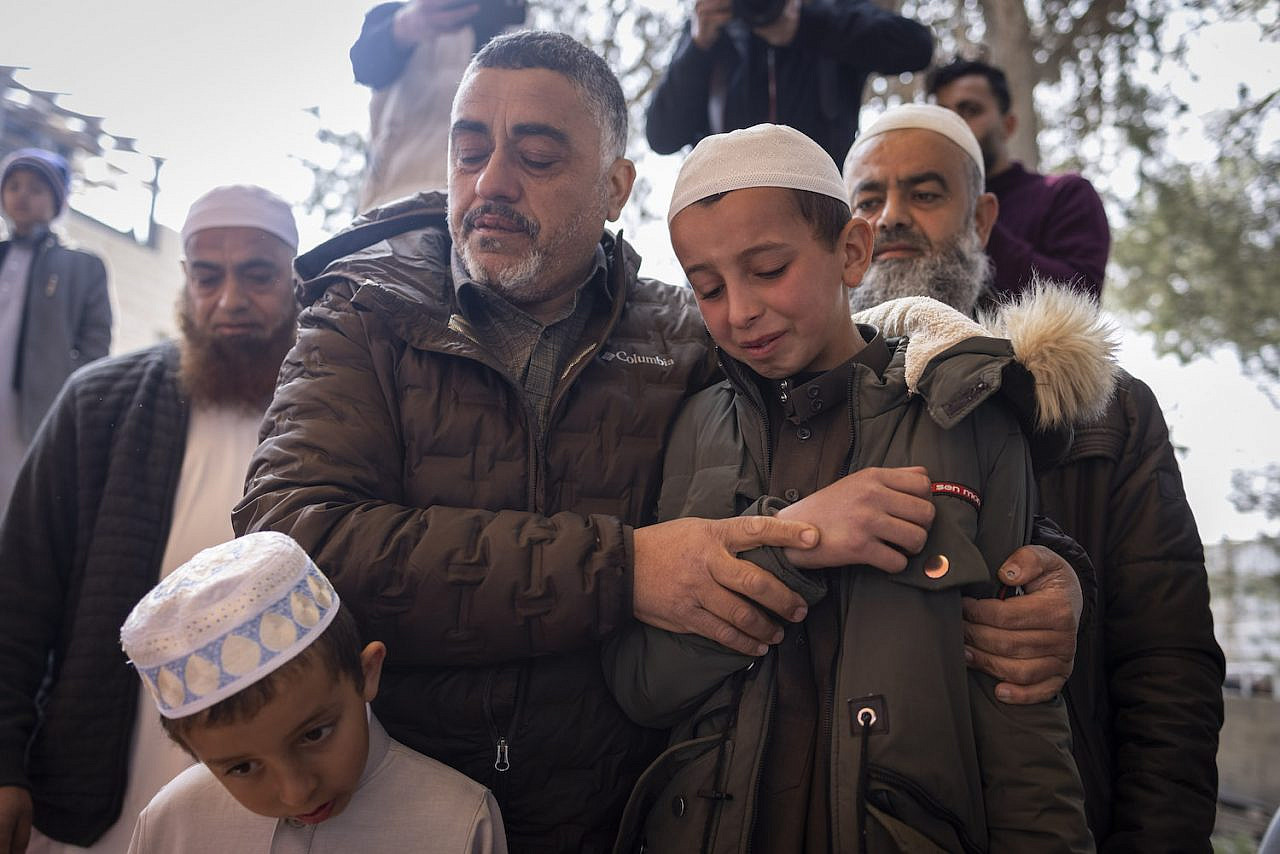
The doctor who pronounced Sameh dead told +972 that the bullet penetrated his abdominal cavity, causing him severe internal bleeding, damaging his spleen, and tearing his arteries. According to the doctor, it is possible that had Sameh arrived at the medical center earlier, his life could have been saved. The IDF Spokesperson, meanwhile, said that “the army is looking into the circumstances of the death.”
‘The children have not been able to sleep’
Sameh — who was 37 years old, a father of five, and the youngest of five brothers — lived in Za’atara, a small village with a few homes and businesses. His family members describe a man who loved spending time with his children, had a special connection with animals, and volunteered around the world, most recently in Turkey after the massive earthquakes that devastated large parts of the country and Syria.
“Whenever someone’s car was destroyed or when a person got stuck in the snow, Sameh was always the first to arrive,” said Ayman, Sameh’s cousin, “after the earthquake in Turkey, he collected all the money he could, including from his savings, and went. Four days after he returned, they murdered him.”
Za’atara is surrounded by a 1.5 meter high fence and an iron gate, built by the residents in the face of escalating settler violence. “We built the fence to protect our families and children,” Ayman said. “Whenever there are tensions, we close the gate, stay within the boundaries of the village and do not leave it.”
In the video footage of the settler attack, Palestinian residents, including children, are seen close to the fence. According to the documentation, none of them, not even Sameh, left the village grounds. Bullet holes riddled the iron gate and a nearby wall.
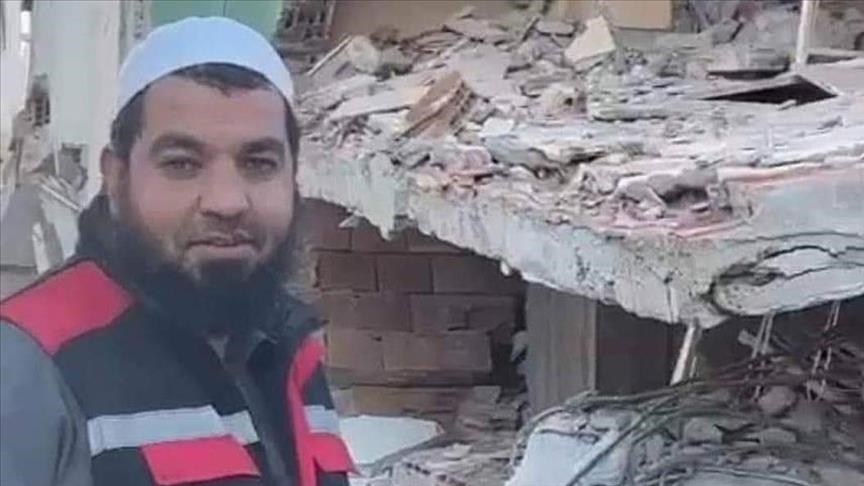
On the morning of March 3, a few days after Sameh was killed, dozens of European diplomats arrived in Za’atara for a solidarity visit. “We don’t want food or clothes,” Ayman told them. “We only ask for one thing: that our children can sleep at night.” Next to him sat Sameh’s two children, who were crying. Many of the visitors had difficulty holding back tears, too.
Since the military occupation over the West Bank began in 1967, Israeli authorities have not allowed Za’atara to expand, its residents said, leading many of them to move to the nearby town of Beita. “We are not allowed to build homes or even expand existing ones,” Ayman said. “A playground, built with European funding, was destroyed by the army.”
The small village is engulfed by the harrowing loss. “Ever since Sameh was killed, the children have not been able to sleep, whether during the day or night,” Ayman said, “They saw their father and uncle murdered in front of their eyes. They saw how [settlers] tried to burn down their home. It shocked them.”
A version of this article was first published in Hebrew on Local Call. Read it here.

